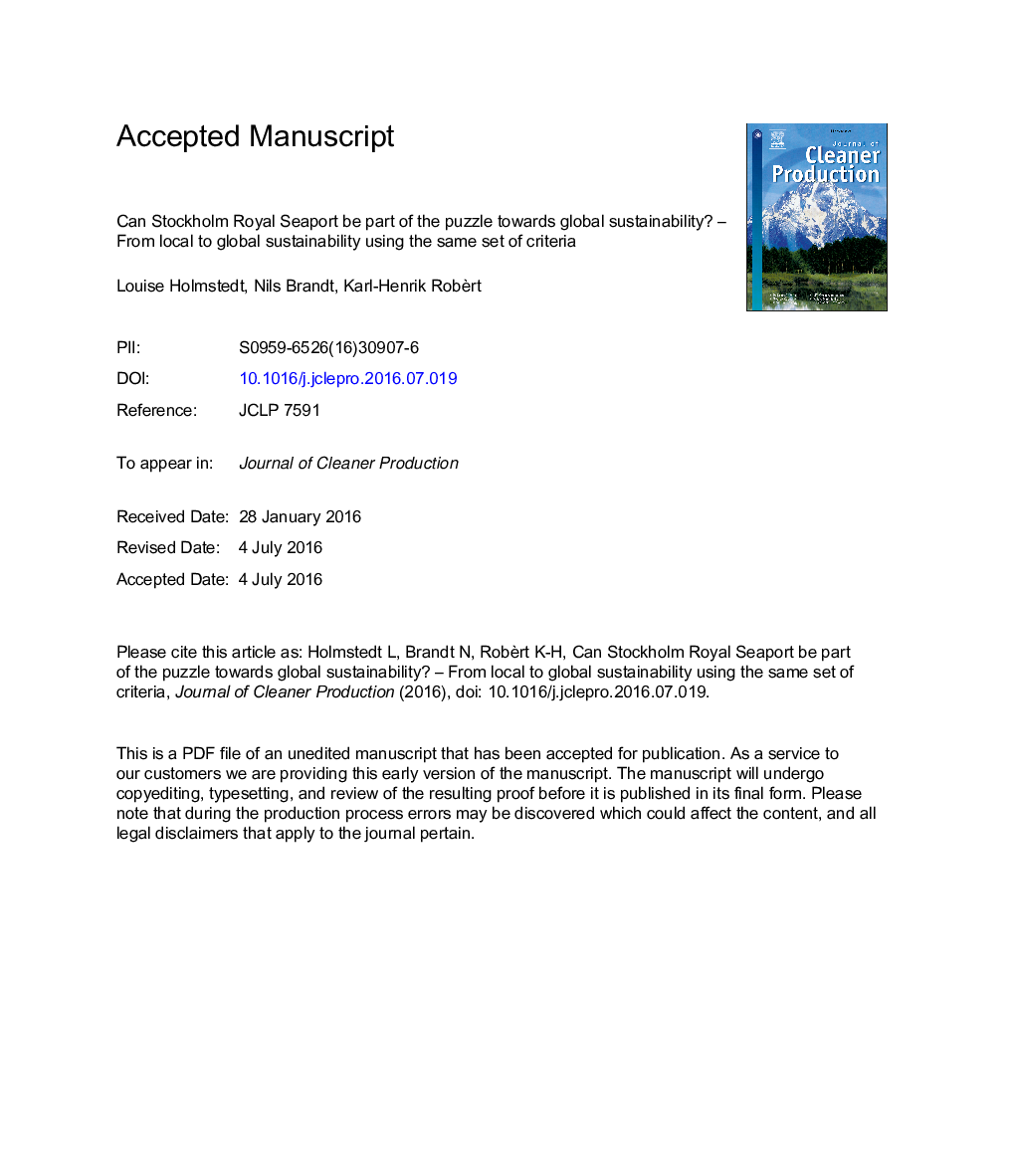| Article ID | Journal | Published Year | Pages | File Type |
|---|---|---|---|---|
| 5480637 | Journal of Cleaner Production | 2017 | 21 Pages |
Abstract
Urban sustainable development is today seen as one of the keys towards unlocking the quest for a sustainable world. One feature of urban sustainability is the increased interest in developing sustainable urban districts. For many of these developments, guiding sustainability documents are developed to frame future goals. However, few of these documents specify on which grounds they determine the sustainability of goals and they are largely developed as independent islands of local sustainability. This is unfortunate as cities and their districts are fully dependent on surrounding environments. Failing to include a holistic approach into the local planning increases the risk of sub-optimisation, future lock-ins and missed targets on a higher level. The aim of this study is to analyse whether the environmental and sustainability programme for Stockholm Royal Seaport, a new urban district in Stockholm, Sweden, can guide development of the district towards holistic ecological sustainability. By using the Framework for Strategic Sustainable Development a holistic template for an ecologically sustainable planet has been described, important sectors for the built environment have been identified and the environmental and sustainability programme for the district has been analysed. This study showed that the vision and operational goals put forward in the Stockholm Royal Seaport programme complies relatively well with the designed template. However, important deviations in all sectors but land use have been identified. These deviations arise in the translation process between theory and practice. The vision for the district and the implementation phase are not aligned due to too narrow a perspective of a sustainable urban district, lack of robust sustainability principles including use of such to identify key strategic questions. In addition to the lack of an all-embracing conceptual framework, there is also a lack of structures for cooperation between stakeholders and conflicts between local and regional agendas. Use of a unifying framework can describe desirable future scenarios where the local level does not contribute to violation of the universal sustainability principles and identify step-wise routes towards such scenarios.
Related Topics
Physical Sciences and Engineering
Energy
Renewable Energy, Sustainability and the Environment
Authors
Louise Holmstedt, Nils Brandt, Karl-Henrik Robèrt,
